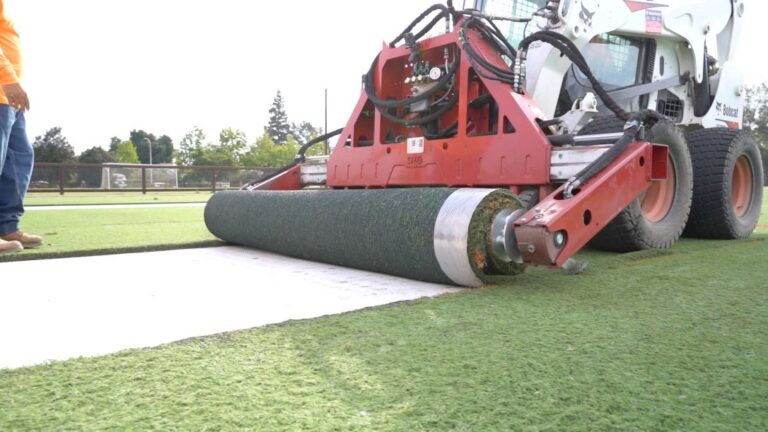TenCate announced that it has started manufacturing synthetic turf without the use of PFAS.
“TenCate has worked tirelessly to eliminate any PFAS from our manufacturing process,” said Joe Fields, president and CEO of TenCate Americas. “We are dedicated to making the most innovative, highest quality turf that is both safe and sustainable, and this advancement is one more pivotal way we are accomplishing our mission.”
As one of its sustainability initiatives, TenCate performed an in-depth review of how it manufactures its synthetic turf. Engineers discovered a manufacturing processing aid used in fiber extrusion that contained trace levels of non-soluble PFAS, and were able to replace it with one that does not contain PFAS.
“It’s important to note that third-party testing of previous versions of our artificial turf detected only minuscule levels of non-soluble PFAS. These were far lower than the levels that have been found in common consumer products like dental floss and prescription medications, and significantly less than that allowed by the Food and Drug Administration in packaging for food,” Fields said. “We still took action, however, because we’re dedicated to giving our customers complete peace of mind.”
This is just the latest advancement for TenCate. Among the company’s other initiatives:
- Launching a new program to recycle end-of-life synthetic turf across the nation. The initiative, a joint program between TenCate, Cyclyx International and ExxonMobil, is the first in the U.S. to recycle old synthetic turf into feedstock that can be used to create new turf and other products. Known as TenCate Turf Recycling Solutions, the initiative is processing aged turf fields from parks, high schools, colleges and other sites.
- Creating biodegradable infill as a sustainable alternative to rubber infill. TenCate’s GeoCool infill is made from a renewable inorganic mineral that’s 100% recyclable and non-toxic. TenCate also uses other organic or natural infills, including those made with cork or walnut shells.
- Manufacturing turf that offers communities a variety of important benefits. These include conserving up to 1 million gallons of water per year, per athletic field; significantly reducing maintenance labor and costs; eliminating the use of pesticides, herbicides and fertilizers on the field; and allowing increased play and activities year-round in all types of weather.
“We are relentlessly innovating to make cutting-edge turf that exceeds all expectations for performance,” Fields said. “That means putting quality and sustainability first in everything we do — from research to design to manufacturing.”
To learn more about TenCate’s commitment to quality and sustainability, visit www.playingforkeeps.info.


